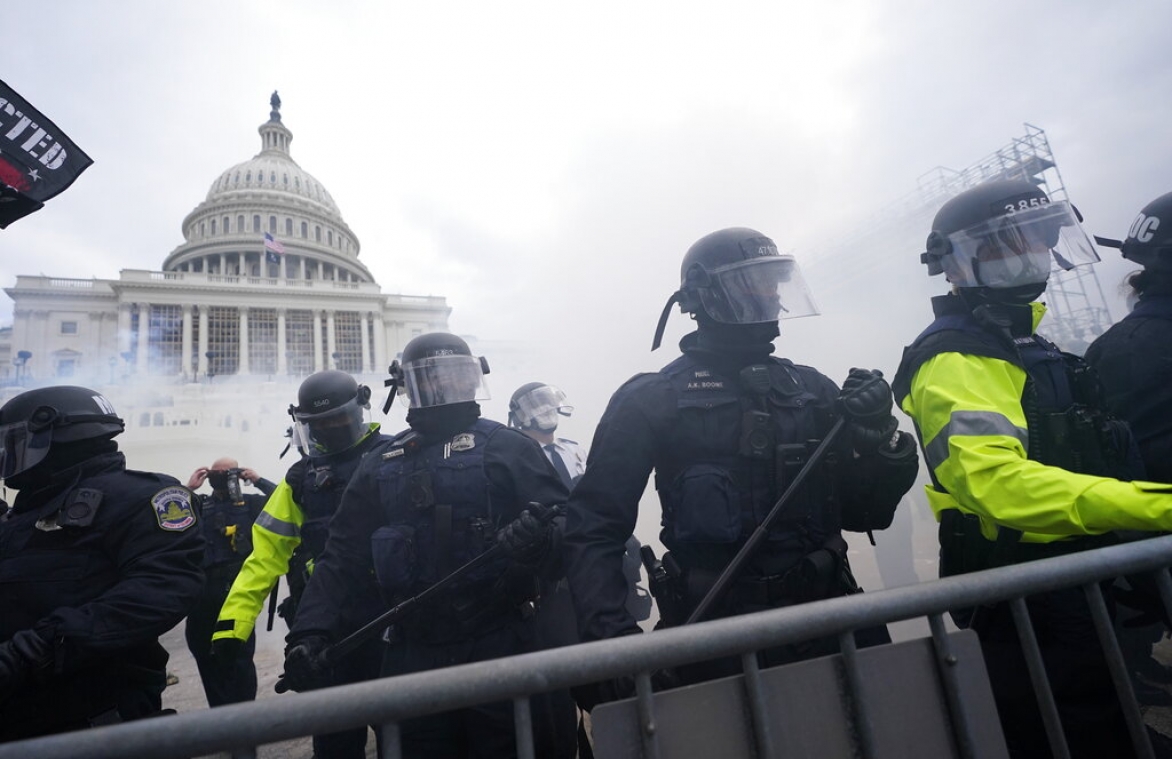Editor’s note: The Associated Press reported on March 18 that Washington’s Court of Appeals “granted a request by six Seattle police officers to temporarily extend a restraining order barring the release of records that would identify them as participants in the Jan. 6 pro-Trump rally that fueled a deadly insurrection at the U.S. Capitol. Appeals Court Commissioner Jennifer Koh’s ruling lets a restraining order remain in place pending the court’s review of a King County judge’s ruling that would allow the City of Seattle to disclose the records, The Seattle Times reported. Koh wrote in a three-page ruling that a “brief additional delay is justified.” The appeals court will expedite the case, with a hearing set for April 2.”
SEATTLE (AP) — A King County, Wash., judge on March 10 denied a request for an injunction to stop the City of Seattle from disclosing records that would identify six Seattle police officers as participants in the Jan. 6 pro-Trump rally in Washington, D.C.
“They traveled to Washington, D.C., and participated in a very public and publicized event,” Superior Court Judge Sandra Widlan said, when explaining why the officers’ privacy arguments to prevent disclosure had failed.
Widlan’s ruling essentially means the city can release records that identify the officers — but not yet, The Seattle Times reported. After denying the officers’ motion, the judge agreed to extend by seven days a temporary restraining order that prevents the disclosure, while allowing the officers to seek an appeal of her ruling before Washington’s Court of Appeals.
The officers filed suit on Feb. 23 seeking to block release of police personnel and investigative records to four individuals, including a KOMO news reporter, who separately had requested the records under the state’s Public Records Act. The city voluntarily notified the officers it was prepared to release the information.
Bankrolled by the Seattle Police Officers Guild, the officers’ attorney, Kelly Sheridan, argued that the records are barred from disclosure under public-records law because they are part of an open investigation. Sheridan also said the law provides exemptions for privacy and constitutional free-speech rights.
All the officers acknowledged they attended the rally Jan. 6 in support of Trump’s claim that the November election was stolen, as an exercise of “their constitutional rights to free speech.”
But Sheridan and the officers’ suit have claimed none of them participated in the riot at the Capitol or engaged in any wrongdoing of any kind while in Washington, D.C.
When images on social media showed two Seattle officers at the rally, the Seattle Police Department ordered any officer who had attended the event to report their participation.
The department and the city’s Office of Police Accountability since have announced that six officers known to have attended the event are being investigated to learn whether they engaged in criminal activities or violated department policy.
Chief Adrian Diaz has said he would fire any officer found to have engaged in criminal conduct at the Capitol.
During her ruling, Widlan addressed and rejected the officers’ legal arguments for each public records law exemption and cited case law as inapplicable given the circumstances.
Among her reasoning, the judge noted she “takes very seriously” officers’ safety concerns, but she noted no high-ranking police or city officials have come forward to support the officers’ claims they would be unfairly targeted or harassed if the records identifying them were released.
But the judge agreed with lawyers for both the officers and the city that, pending appeal, the temporary restraining order should be broadened to apply to all similar requests beyond just the four at issue so the parties wouldn’t have to continually come back to court.
The Free Speech Center newsletter offers a digest of First Amendment and news media-related news every other week. Subscribe for free here: https://bit.ly/3kG9uiJ

